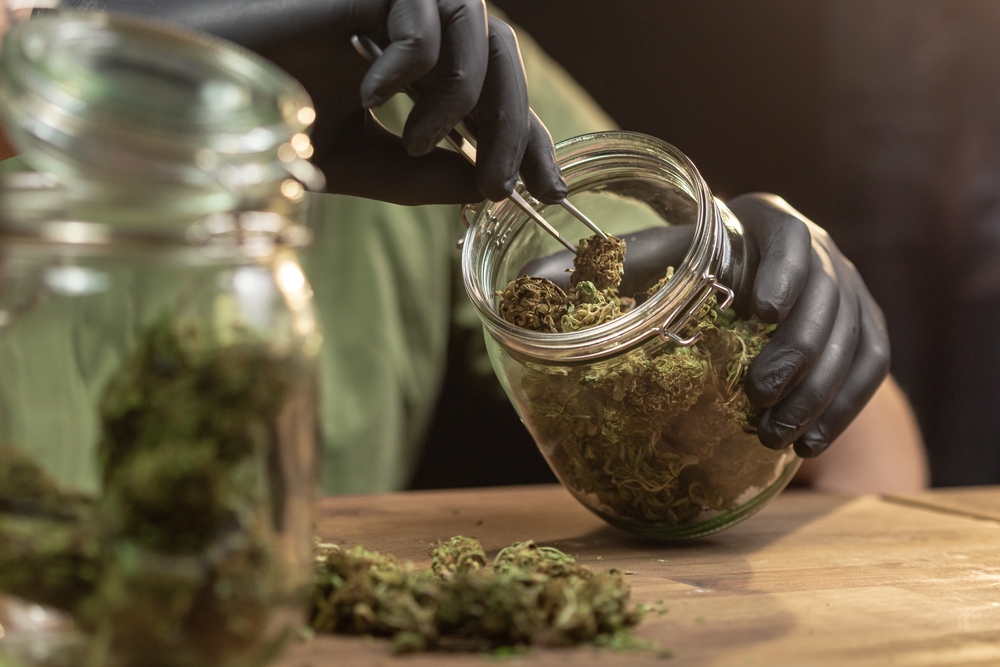Home > ASME Articles > Non-Medical Use of Cannabis Increases Risk for Moderate-to-Severe Cannabis Use Disorder
Addiction Science Made Easy
November 2023
CTN Dissemination Library & Northwest ATTC

Medical cannabis is currently legal in 38 states in the U.S., with 23 of those also legalizing recreational use. As legalization has increased, use of cannabis for both medical and non-medical reasons has increased along with it – and, as use of cannabis has increased, so too has risk for cannabis use disorder (CUD).
It’s estimated that 17% of cannabis-using individuals have CUD. But what factors contribute to the likelihood a person will develop CUD? Do the reasons for their use of cannabis (medical or non-medical) play any role in that risk?
This survey study used data from NIDA Clinical Trials Network study CTN-0077-Ot (Medical Cannabis Use Among Primary Care Patients). It took place at an integrated health system in Washington State, which legalized cannabis for both medical and non-medical use in 2012.
Among 108,950 adult patients who completed routine cannabis screening during the study period, 5000 were selected for a confidential cannabis survey looking at past-year cannabis use and race/ethnicity, and 1463 who reported past 30-day cannabis use were included in the study.
Patients were asked whether they used cannabis in the past 30 days for medical use only, non-medical use only, and/or both reasons. They were also screened for CUD symptoms and severity.
Of the participating primary care patients:
The prevalence of CUD was approximately 21% across all groups – the reasons why someone used cannabis (medical or non-medical) had no impact on whether or not they developed CUD.
However, the prevalence of moderate-to-severe CUD did vary across groups. Of the 6.5% of patients who screened positively for moderate-to-severe CUD, 1.3% reported medical use only, 7.2% reported non-medical use, and 7.5% reported both reasons.
This study shows that cannabis use disorder is common among patients who use cannabis, with about 1 in 5 patients in this group screening positive for CUD, and reasons for use – medical or non-medical -- do not appear to impact risk for developing a use disorder. It also shows that patients who use cannabis for any non-medical reasons are at higher risk for moderate-to-severe CUD.
These results underscore the importance of talking to patients not just about whether they use cannabis, but also about their reasons for use, as non-medical reasons may put them at higher risk for more severe cannabis use disorder.